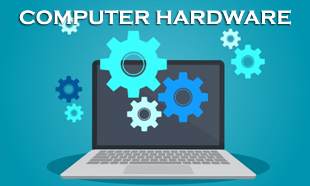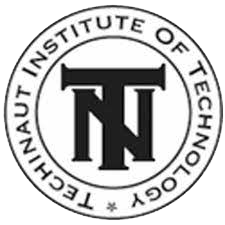0
A Comprehensive Exploration of the "Computer Hardware" Course at SHREE RADHA KRISHNA INSTITUTE OF COMPUTER SCIENCE, a Techinaut Institute of Technology Franchise in Chandrapur, Maharashtra
In the dynamic realm of technology, understanding the intricate details of computer hardware is fundamental. The "Computer Hardware" course at SHREE RADHA KRISHNA INSTITUTE OF COMPUTER SCIENCE, a distinguished franchise of Techinaut Institute of Technology in Chandrapur, Maharashtra, is a six-month program meticulously designed to equip individuals with in-depth knowledge of computer hardware components, maintenance, troubleshooting, and more. Let's embark on a journey through the curriculum, exploring the multifaceted world of computer hardware.
PART I: THE BASICS
The Personal Computer:
The course begins by unravelling the essentials of a personal computer. Students delve into the historical evolution of personal computers, understanding their significance in modern society. Basic concepts and terminology lay the groundwork for a comprehensive course exploration.
Basic PC Concepts and Terminology:Participants are introduced to fundamental PC concepts and terminology, ensuring a solid understanding of the language of computer hardware. This segment provides the vocabulary necessary for a nuanced exploration of the subject from the motherboard to the peripherals.
PART II: INTERNAL COMPONENTS
Microprocessors:
The course progresses into the heart of computer hardware - microprocessors. Participants dissect the intricacies of these central processing units, exploring their architectures, functionalities, and role in a computer system's overall performance.
Motherboards:A deep dive into motherboards follows, where students gain insights into the central hub of a computer system. Motherboard architecture, components, and the integration of various peripherals are explored, forming the backbone for understanding internal hardware connections.
Chipsets and Controllers:Understanding chipsets and controllers is pivotal for comprehending data flow within a computer. This module elucidates the roles of chipsets and controllers in managing communication between different hardware components.
The BIOS and the Boot Process:The BIOS (Basic Input/Output System) is a critical component for system initialization. Students explore the BIOS, the boot process, and firmware, understanding how a computer transitions from a powered-off state to a fully operational one.
Computer Memory:This segment focuses on computer memory, a vital aspect of system performance. Students delve into different types of memory, including RAM (Random Access Memory) and ROM (Read-Only Memory), understanding their functions and significance.
Cache Memory:Cache memory plays a crucial role in enhancing processing speed. The course explores the intricacies of cache memory, its levels, and how it optimizes the retrieval of frequently used data.
Hard Disks and Floppy Disks:Storage solutions are a cornerstone of computer hardware. This module provides a comprehensive understanding of hard and floppy disks, covering their structures, functionalities, and role in data storage.
CD-ROMs and DVDs:Optical storage media, such as CD-ROMs and DVDs, are explored in detail. Students learn about their formats and functionalities and how these media contribute to data retrieval and storage.
Expansion Cards:An exploration of expansion cards follows, focusing on understanding different types of cards, such as graphics cards, sound cards, and network interface cards. Participants learn how these cards enhance a computer's capabilities.
Video Cards:Dedicated to video cards, this module delves into the intricacies of rendering graphics. Students gain insights into GPU (Graphics Processing Unit) functionalities, video resolutions, and the impact of video cards on overall system performance.
System Resources:Understanding system resources is crucial for efficient hardware management. Students explore concepts like IRQs (Interrupt Request), I/O addresses, and DMA (Direct Memory Access), learning how these resources are allocated and managed.
Power Supply and Electrical Issues:The course concludes its internal components section by exploring power supply and electrical issues. Students learn about power supply units, electrical safety measures, and troubleshooting common power-related problems.
PART III: EXTERNAL COMPONENTS
The System Case:
Transitioning to external components, the course begins with exploring the system case. Participants learn about different form factors, case designs, and the role of the system case in housing and protecting internal components.
Monitors and Displays:A dedicated module covers monitors and displays, focusing on technologies, resolutions, and the impact of different display options on user experience. Participants gain insights into choosing the right display for specific computing needs.
Printers:Understanding printing technologies and printer functionalities is essential. This segment explores various types of printers, printing mechanisms, and considerations for selecting the most suitable printer for specific tasks.
Keyboards, Mice, and Pointing Devices:User input devices are pivotal for interaction with a computer. Students explore keyboards, mice, and pointing devices, understanding their functionalities, ergonomic considerations, and the impact on user comfort and efficiency.
Ports and Connectors:An in-depth exploration of ports and connectors follows, covering USB ports, HDMI connectors, audio jacks, and more. Participants gain practical knowledge about connecting peripherals and devices to a computer system.
Networks and Communications:Understanding networking concepts is imperative in today's interconnected world. This module delves into network interfaces, protocols, and the essentials of computer communications, preparing students for the networking aspects of computer hardware.
Audio/Visual Devices:This segment explores audio and visual devices, including sound cards, speakers, and webcams. Participants gain insights into the role of these devices in enhancing multimedia experiences on a computer system.
PART IV: SYSTEM CARE AND TROUBLESHOOTING
PC Care and Maintenance:
Ensuring a computer system's longevity and optimal performance requires proper care and maintenance. This module covers routine maintenance tasks, cleaning procedures, and best practices for preserving hardware components.
Electrical Power Issues:Understanding electrical power issues is crucial for maintaining a stable computing environment. Students explore power protection mechanisms, surge suppression, and strategies for mitigating electrical power-related risks.
Troubleshooting PC Hardware:The course concludes with an in-depth exploration of troubleshooting PC hardware. Participants learn systematic approaches to identifying and resolving hardware issues, ensuring they are well-equipped to handle common problems professionally.
CONCLUSION:
The "Computer Hardware" course at SHREE RADHA KRISHNA INSTITUTE OF COMPUTER SCIENCE, a Techinaut Institute of Technology Franchise in Chandrapur, Maharashtra, is a comprehensive exploration of the intricacies of computer hardware. From understanding the basics to delving into internal and external components, the program equips participants with a robust skill set essential for a computer hardware maintenance, troubleshooting, and system care career. In the evolving landscape of technology, this course serves as a gateway for individuals to become proficient contributors to the ever-expanding world of computer hardware. SHREE RADHA KRISHNA INSTITUTE OF COMPUTER SCIENCE, under the Techinaut umbrella, continues to shape the future of technology professionals, providing them with the knowledge and expertise needed to navigate the complexities of computer hardware with confidence.
Lectures = 130 HRS
Practical/Tutorials = 130 HRS
Total = 260 HRS


